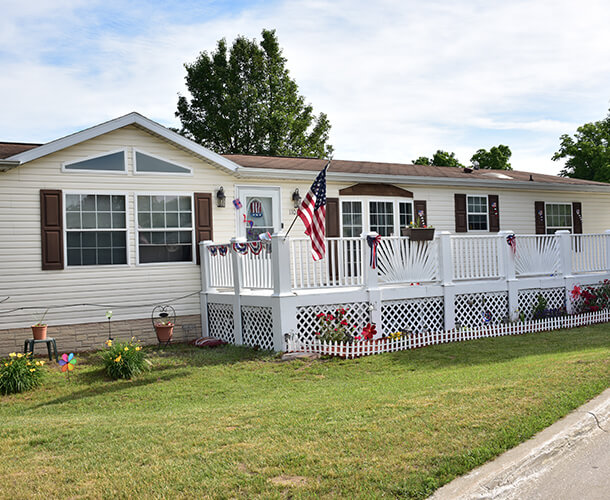Finding a group home that meets the needs of a loved one can be an overwhelming task, especially if you’re unfamiliar with the process. Whether you’re seeking a group home for a family member with disabilities, mental health concerns, or elderly care, it’s essential to understand what these homes offer, how to choose the best option, and how to find one near you. Group homes are designed to provide a supportive living environment with the necessary resources to ensure individuals receive the care they need while also promoting independence and social integration. In this guide, we’ll break down everything you need to know about group homes, including what they are, types of group homes, how to find one near you, and what to expect during the selection process. Group Homes near me
What Are Group Homes?
A group home is a residential facility designed to offer long-term or temporary housing and care for individuals who require assistance with daily living. These homes are typically small, community-based facilities that provide a safe, supportive environment for people with disabilities, mental health issues, or the elderly. Unlike large institutions, group homes are designed to mimic a regular home, promoting a sense of community and offering personalized care that suits the residents’ needs.
Types of Group Homes
Group homes can differ depending on the specific needs of the residents they serve. Here are the common types:
- Group Homes for Adults with Disabilities: These homes provide specialized care for adults with developmental or intellectual disabilities, offering assistance with daily activities, employment, social skills, and medical needs.
- Group Homes for Mental Health: People with mental health conditions, such as depression, anxiety, schizophrenia, or bipolar disorder, may require a group home for supervision and therapy. These homes focus on stability, counseling, and reintegration into society.
- Elderly Group Homes: Designed for seniors who can no longer live independently, these homes provide various levels of assistance, from help with personal care to 24/7 medical supervision.
- Substance Abuse Recovery Homes: These homes offer a safe and supportive environment for individuals recovering from substance abuse, focusing on therapy, rehabilitation, and life skills.
How to Find Group Homes Near Me
Finding the right group home near you can feel like a daunting task, but the process can be made easier by following these steps:
1. Research and Identify the Right Type of Home
Start by determining what type of group home will best meet the needs of the person requiring care. For example, if you’re searching for an elderly care facility, focus on group homes that specialize in senior care. If your loved one has a disability or mental health condition, look for homes offering specialized support.
2. Online Directories and Databases
Several online directories and databases offer listings of group homes by location. Websites like Care.com, A Place for Mom, and GroupHomes.com can help you find homes in your area. These platforms often provide information on services, reviews, and ratings from other families.
3. Local Agencies and Services
Many states and municipalities have local agencies or governmental organizations dedicated to finding housing for individuals with special needs. Check with local offices for developmental disabilities or aging services for a list of licensed group homes near you.
4. Contacting Hospitals and Medical Providers
Hospitals and medical professionals often have referral networks or knowledge about group homes. Contact your healthcare provider for recommendations based on your loved one’s specific needs.
5. Online Reviews and Feedback
Reading reviews from other families can give you a better understanding of what to expect from each group home. Websites like Google Reviews, Yelp, or social media platforms often feature real feedback from individuals or families who have had firsthand experiences with local group homes.
Factors to Consider When Choosing a Group Home
When selecting a group home for your loved one, it’s important to take several factors into account to ensure they receive the best care possible. Here are some key considerations:
1. Location and Proximity to Family
Ideally, a group home should be located near family and friends so that residents can maintain social connections. Look for homes that are accessible and within a reasonable distance for regular visits.
2. Staff-to-Resident Ratio
A lower staff-to-resident ratio typically ensures that each individual gets more personalized care. Be sure to inquire about the number of staff members per resident and how often care is available.
3. Services and Support
What services does the group home offer? Some homes provide a range of services such as daily living assistance, medical care, therapy, recreational activities, and social integration. Make sure the facility can meet the specific needs of the individual you’re caring for.
4. Licenses and Accreditations
It’s essential that the group home you choose is licensed and accredited by the relevant state or national authorities. This ensures the home meets quality standards and regulations regarding care and safety.
5. Cost and Payment Options
Group homes may charge different rates depending on their services and location. Be sure to inquire about fees upfront and whether your loved one qualifies for any state or federal assistance programs, such as Medicaid.
What to Expect When Moving into a Group Home
Moving into a group home can be an emotional process for both the individual and their family. However, these homes are designed to be supportive and help residents adjust to their new environment. Here’s what you can expect:
1. Orientation and Assessment
Most group homes begin with an orientation period where staff assess the needs of the resident. This may include physical, psychological, and social evaluations to ensure that the home is the right fit.
2. Daily Routine and Activities
Group homes typically have a structured daily routine that includes personal care, meals, activities, and socialization. Many offer therapy, group discussions, and recreational outings to keep residents engaged and mentally active.
3. Family Involvement
Many group homes encourage family involvement through regular visits and updates on the resident’s progress. You can expect periodic meetings with caregivers and staff to discuss the individual’s health and well-being.
4. Legal Considerations
For some individuals, legal guardianship or power of attorney may be required to make medical or financial decisions. Be sure to understand the legal requirements involved before moving a loved one into a group home.
Conclusion
Finding the right group home near you is a critical step in ensuring the well-being of a loved one who requires specialized care. It’s important to do thorough research, evaluate different options, and consider the specific needs of the individual. By taking the time to assess various factors such as location, services offered, and cost, you can make a more informed decision that will positively impact their quality of life.




